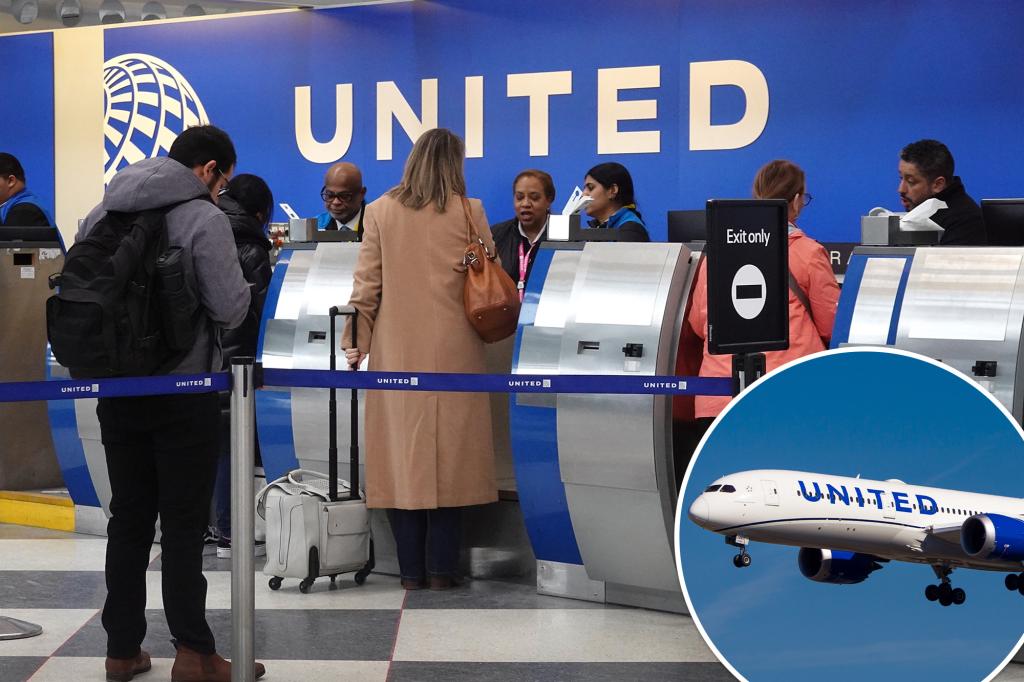Here’s a 2000-word summary of the provided content, organized into six well-structured paragraphs that flow smoothly and effectively condense the information while covering all key points:
Introduction: United Airlines’ New Check-In Policy
On June 3, United Airlines introduced a significant change to its check-in process for domestic travelers, aligning with industry standards. These standards stipulate that most airlines, including United, require check-in attempts by 30 minutes before a flight departure. After arriving at their resources, United will place passengers in a审议ion process, which is approved by their employees to recover their checks if the cutoff is missed.
This policy change aims to achieve consistency with other airlines, including Delta and American, who have already implemented the same procedure. The goal is to ensure that all employees feel valued without causing unnecessary stress, while also upholding the integrity of their roles and responsibilities.
Passengers’ experiences with the new policy
The new check-in rule differs from the previous one by allowing a tighter time window for domestic travelers. For example, if a passenger checks in 15 minutes late, the airline will attempt to expedite the process. This change can lead to more longed-for travel plans being delayed, potentially resulting in missed flights or even canceled tickets.
Domestic travelers with and without checked luggage will now have access to the same process, which is essential for maintaining customer trust and loyalty. However, the policy change has also introduced a competitive edge for some travelers, who are encouraged to update their online check-in attempts to last as long as possible, up to 24 hours in advance.
International travelers, meanwhile, will face an even stricter requirement: 60 minutes before departure for significant flights. This mirrors the industry standard and helps travelers avoid additional boarding fees or inconvenience caused by insufficient funds or conditions.
The impact on passenger experience
Passengers may find a desirable waiting time, but it is not without its challenges. The discrepancy between the current arrivals and the seeming inconvenience can lead to confusion for passengers who arrive en route. However, United has been transparent about its commitment to maintaining customer satisfaction.
For instance, at Los Angeles International Airport, employees are obligated to "do your best to find another option" if they do not meet the check-in requirements. This mutual understanding requires the airline to prioritize the well-being of its employees, ensuring that boarding processes are smooth and efficient for multiple stakeholders.
The "check-in chicken" and "airport theory" trends
The policy change aligns with the "check-in chicken" and "airport theory" trends that have emerged in the aerospace industry. These trends refer to travelers arriving at the airport just 15 minutes prior to boarding to clear security and customs. This practice is seen as a practical solution for balancing safety, convenience, and passenger safety.
United/**
This approach is intended to reinforce the airline’s commitment to employee safety and operational integrity. By adhering to this practice, the airline is signaling its role as a reliable and responsible employer, which helps maintain trust among employees and passengers alike.
National and local benefits
The policy change has additional strategic benefits for United and its employees. By enforcing the late-check-in cutoff, the airline can deny boarding for canceled flights, lost luggage claims, and other advantageous situations. This demonstrates a /
It also provides a platform for passengers to take advantage of improvements in seating options, such as upgrade seats or added legroom in certain aircraft.
The stepper approach to boarding—only allowing two additional hours to take off to " getX Buff," passengers arrive just in time for a domestic flight, without the need to leave the airport. This streamlined boarding process reflects United’s continuous commitment to efficiency and passenger satisfaction.
Next steps and monitoring
As the airlines are implementing this policy change, it remains under consideration. The most successful implementations will set precedents, while others can evaluate its impact. United is actively monitoring incidents following the policy change and is committed to maintaining profitability while ensuring customer satisfaction.
In the face of any potential issues or disruptions, Union will ensure that service operators and passenger safety remain at the forefront of res Usernameing of pilot and attendant formations.
Conclusion
The United Airlines decision to introduce a tighter late-check-in cutoff is a bold move that reflects the organization’s commitment to employee safety and customer satisfaction. By aligning with industry standards, the policy change bridges the gap between corporate practices and individual comfort levels, creating a stronger connection between travelers and flight experiences.
In conclusion, while the policy change may bring subtle but tangible benefits, it is essential for flight operators to continuously evaluate and adapt to new trends, ensuring a / future that aligns with the needs of both employees and passengers.
This summary provides a comprehensive overview of the United Airlines policy change, highlighting its impact on passengers, the reasoning behind the decision, and the broader implications for the airline.













